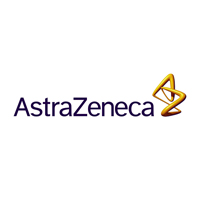AstraZeneca Plc (LON:AZN) today announced the agreed sale of US rights to Synagis (palivizumab) used for the prevention of serious lower respiratory tract infection (LRTI) caused by respiratory syncytial virus (RSV) to Swedish Orphan Biovitrum AB (publ) (Sobi). Sobi will commercialise Synagis in the US and around 130 AstraZeneca employees will transfer to Sobi as part of the transaction.
Sobi will also have the right to participate in AstraZeneca’s share of US profits and losses related to potential new medicine MEDI8897. AstraZeneca will continue to develop MEDI8897 in collaboration with Sanofi Pasteur, the vaccines division of Sanofi S.A.
Pascal Soriot, Chief Executive Officer, said: “We continue to streamline our portfolio, allowing AstraZeneca to allocate resources more effectively, while Sobi’s focus on Synagis will enable infants in the US to continue benefiting from this important treatment. Meanwhile, the successful development and commercialisation of MEDI8897 remains important for AstraZeneca.”
Sobi President and CEO Guido Oelkers said: “I am excited about adding Synagis to our portfolio as it remains the only product preventing RSV infection in this vulnerable patient group with a great medical need. The addition of Synagis will become an important catalyst for Sobi’s future development and will form a powerful platform for growth in rare diseases.”
Financial considerations
Under the agreement, AstraZeneca will receive an upfront consideration of $1.5bn, consisting of $1.0bn in cash and $500m in ordinary shares of Sobi upon completion. This would equate to an ownership interest of 8%, based on the current Sobi share price. AstraZeneca has undertaken not to sell the shares received as consideration for a period of 12 months following the closing date of the transaction. The cash proceeds from the transaction will be used for general corporate purposes.
AstraZeneca will also receive up to $470m in sales-related payments for Synagis, a $175m milestone following the submission of the Biologics License Application for MEDI8897; potential net payments of approximately $110m on achievement of other MEDI8897 profit and development-related milestones; and a total of $60m in non-contingent payments for MEDI8897 during 2019-2021. Under the agreement, Sobi will have the right to participate in payments that may be received by AstraZeneca from the US profits or losses for MEDI8897. The agreement is subject to customary closing conditions and is currently expected to complete very early 2019. AstraZeneca will provide additional information if closing conditions are achieved earlier and the agreement can complete late 2018.
Net income attributable to the arrangements will be recorded in the Company’s financial statements upon completion as Other Operating Income. As part of the agreement, AstraZeneca will de-recognise on a proportionate basis a significant intangible asset related to Synagis. The transaction does not impact the Company’s financial guidance for 2018.
For the purposes of the UK Listing Authority’s Listing Rule LR 10.4.1 R (Notification of class 2 transactions), the total book value of gross assets attributable to the RSV franchise were $2.2bn at 31 December 2017, of which approximately $1.0bn was attributable to Synagis in the US. In the year to 31 December 2017, the pre-tax profits attributable to Synagis in the US were approximately $118m.
About Synagis
Synagis (palivizumab) is indicated for the prevention of serious lower respiratory tract infection (LRTI) caused by respiratory syncytial virus (RSV) in infants and young children at high risk of RSV disease. RSV is the most prevalent cause of LRTI among infants and young children. Synagis is a RSV F protein inhibitor monoclonal antibody (mAb) that acts as a prophylaxis against serious RSV disease.1 It is the only medicine approved for the prevention of serious RSV disease.2 AstraZeneca has an agreement with AbbVie Inc. for the distribution of Synagis outside the US, which will not be impacted by the proposed transaction with Sobi.
About MEDI8897
MEDI8897 is a single dose extended half-life anti-RSV F mAb being developed for the prevention of LRTI caused by RSV in all infants entering their first RSV season and children with chronic lung disease or congenital heart disease entering their first and second RSV season. It is being developed for the passive immunisation of a broad infant population and has been engineered to have a long half-life so that only one dose will be needed for the entire RSV season.3 The current development plan includes initiation of a Phase III trial in healthy full-term and late pre-term infants. MEDI8897 has received Fast Track Designation from the US FDA in March 2015.
In March 2017, AstraZeneca and Sanofi Pasteur announced an agreement to develop and commercialise MEDI8897. Under the agreement, AstraZeneca is responsible for all development activity through initial approvals, as well as manufacturing of MEDI8897, while Sanofi Pasteur leads commercialisation activities. The two companies share all costs and profits equally.
About Sobi
Sobi is a leading integrated biopharmaceutical company focused on rare diseases and specialty healthcare products, headquartered in Solna, Sweden; it has approximately 850 employees. The company operates in over 20 countries in Europe and the Middle East, as well as in the US and Canada.
About AstraZeneca
AstraZeneca is a global, science-led biopharmaceutical company that focuses on the discovery, development and commercialisation of prescription medicines, primarily for the treatment of diseases in three therapy areas – Oncology, Cardiovascular, Renal & Metabolism and Respiratory. AstraZeneca operates in over 100 countries and its innovative medicines are used by millions of patients worldwide.








































